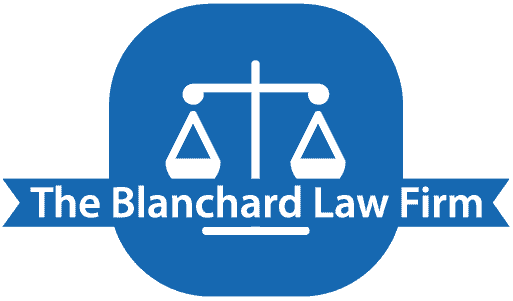
16 Jun What Documents Are Typically Included in an Estate Plan?
Documents You Need For An Estate Plan
Creating an estate plan is an essential step to ensure that your assets and wishes are properly managed and executed after your passing. It involves various legal documents that outline your preferences regarding the distribution of your property, healthcare decisions, and the care of your loved ones. In this article, we will explore the different documents that are typically included in an estate plan and their significance. Let’s delve into the details and understand the importance of each component.
The Last Will and Testament: Your Final Say
The Last Will and Testament is the cornerstone of any estate plan. It allows you to specify how your assets should be distributed among your beneficiaries upon your death. This document is especially crucial if you have minor children or specific wishes for charitable contributions. By clearly stating your intentions, you can help minimize disputes among family members and ensure that your estate is handled according to your desires.
Revocable Living Trust: Control and Flexibility
A revocable living trust is an estate planning tool that provides control and flexibility over the management and distribution of your assets during your lifetime and after your passing. By transferring your assets to the trust, you become the trustee, retaining control over your property. You can amend or revoke the trust at any time, allowing you to adapt to changing circumstances. Upon your death, the trust becomes irrevocable and directs the distribution of assets according to your wishes, avoiding probate and providing privacy for your estate.

Durable Power of Attorney: Managing Your Affairs
In the event that you become incapacitated and are unable to handle your financial and legal matters, a durable power of attorney (POA) grants authority to someone you trust to make decisions on your behalf. The appointed agent can manage your bank accounts, pay bills, handle investments, and even make healthcare decisions if you have a healthcare power of attorney. This document ensures that your affairs are managed smoothly and according to your best interests.
Healthcare Directive: Your Medical Preferences
A healthcare directive, also known as a living will or advance directive, is a legal document that outlines your medical preferences and treatment decisions in the event that you become unable to communicate or make decisions for yourself. It provides guidance to healthcare providers and loved ones regarding life-sustaining treatments, resuscitation, and organ donation. By clearly expressing your wishes in advance, you relieve your family from the burden of making difficult healthcare choices on your behalf.
HIPAA Authorization: Protecting Your Privacy
The Health Insurance Portability and Accountability Act (HIPAA) authorization form allows you to designate individuals who can access your medical information and communicate with healthcare providers on your behalf. This document ensures that your privacy rights are upheld and that your trusted family members or friends can obtain crucial medical information when needed. It is an important component of any comprehensive estate plan that includes healthcare directives.
Beneficiary Designations: Passing on Assets
While not technically documents within an estate plan, beneficiary designations play a vital role in asset distribution. These designations are typically associated with retirement accounts, life insurance policies, and payable-on-death bank accounts. By naming specific beneficiaries, you can ensure that these assets are transferred directly to the designated individuals, bypassing the probate process. It is essential to review and update beneficiary designations regularly to align them with your current wishes.
Guardianship Designation: Protecting Your Children
For parents with minor children, appointing a guardian is a critical aspect of estate planning. In your will, you can name a trusted individual or couple to assume guardianship of your children in the event of
your untimely passing. It is essential to discuss this responsibility with the chosen guardian beforehand to ensure their willingness to take on this role. By addressing guardianship in your estate plan, you can provide peace of mind knowing that your children will be cared for by someone you trust.
Benefits of Using a Lawyer To Prepare Your Estate Plan
Using a lawyer to prepare your estate plan offers several significant benefits. Firstly, an experienced estate planning attorney possesses the necessary expertise and knowledge to navigate the complex legal landscape associated with estate planning. They understand the intricacies of state and federal laws and can ensure that your plan complies with all relevant regulations.
Secondly, a lawyer can provide personalized guidance tailored to your unique circumstances and goals. They can assess your specific needs, consider your family dynamics, and help you make informed decisions regarding asset distribution, guardianship, and healthcare directives. With their professional advice, you can optimize your estate plan to protect your assets, minimize tax implications, and provide for your loved ones in the most effective way possible.
A lawyer can also assist you in updating your estate plan as necessary, keeping it current and aligned with any changes in your life or legal requirements. Overall, utilizing the services of a lawyer ensures that your estate plan is comprehensive, legally valid, and fully reflects your wishes.

Where To Keep Your Documents For Your Estate Plan
When it comes to storing your documents for an estate plan, it is crucial to choose a safe and accessible location. Here are a few options to consider::
- Safe Deposit Box: Renting a safe deposit box at a bank can provide a highly secure storage option for your estate planning documents. These boxes are typically housed within the bank’s vault, offering protection against theft, fire, and other disasters. However, it’s important to note that accessing the box during bank hours may be required.
- Home Safe or Fireproof Box: Investing in a home safe or fireproof box is a convenient choice for keeping your estate plan documents close to you. Ensure that the safe or box is designed to withstand fire and other potential hazards. Store it in a location that is not easily accessible to unauthorized individuals, such as a hidden closet or secure room.
- Attorney’s Office: Some individuals choose to store their estate planning documents with their attorney. This option ensures that the documents are in the custody of a legal professional who can provide guidance and assistance when needed. However, it’s important to discuss the attorney’s storage procedures and security measures beforehand.
- Digital Storage: In today’s digital age, storing estate planning documents electronically has become increasingly popular. You can scan your documents and store them securely on encrypted cloud storage platforms or password-protected external hard drives. Make sure to choose a reputable and secure storage provider and regularly back up your files.
Regardless of the storage option you choose, it’s essential to inform your trusted family members, executor, or attorney about the location of your estate planning documents. This ensures that they can access the necessary information promptly when the time comes.
Conclusion
Creating an estate plan is a responsible and proactive step to protect your assets, ensure the well-being of your loved ones, and maintain control over important decisions. By including documents such as a Last Will and Testament, revocable living trust, durable power of attorney, healthcare directive, HIPAA authorization, beneficiary designations, and guardianship designation, you can establish a comprehensive estate
plan.
Remember to consult with an experienced estate planning attorney to tailor your plan to your specific needs and ensure its legal validity. Start planning today to secure a better tomorrow.
Related Questions
Can I create an estate plan on my own?
While it is possible to create a basic estate plan on your own, it is recommended to consult with an experienced estate planning attorney to ensure that your plan is legally valid and addresses all relevant aspects.
Can I make changes to my estate plan after it is established?
Yes, you can make changes to your estate plan at any time. It is recommended to consult with an attorney when making modifications to ensure that the changes are legally sound and properly documented.
Is it necessary to involve my family in the estate planning process?
While involving your family in the estate planning process is not mandatory, it can help avoid confusion and conflicts later on. Openly communicating your intentions and discussing your estate plan with your loved ones can provide clarity and understanding.

Sorry, the comment form is closed at this time.